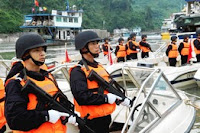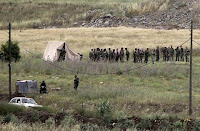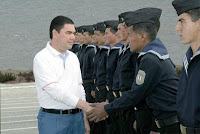A South Korean coastguard was stabbed to death by Chinese fisherman on 11th December, even as Beijing began joint patrols along the Mekong River with Burma, Laos and Thailand.
The South Korean coastguard was killed when his vessel sought to detain the Chinese fishermen, who were fishing illegally near South Korea's territorial waters. It comes after South Korea announced a crackdown: 430 Chinese vessels have been seized for illegal fishing this year, up from 370 last year. A number of clashes have occurred but this is the first time that a member of the coastguard has been killed while detaining fishermen.
Seoul has lodged a formal protest with Beijing. The incident is likely to stir tensions between the two neighbours, and be seen as further evidence of China's lack of regard for maritime boundaries in the South China Sea. Similar incidents in 2010 provoked a serious diplomatic crisis between Japan and China.
Elsewhere, however, China is demonstrating a willingness to cooperate with South-East Asian states. Following the death of 13 Chinese sailors on the Mekong river in October (believed to be by drug smugglers), Chinese forces have begun joint patrols along the Mekong, in conjunction with their counterparts from Thailand, Burma and Laos.
The extent of their jurisdiction and their authority is so far unclear. Most regional states are wary of Chinese intentions and would be unwilling to allow Chinese police to kill or arrest their citizens on local soil. Regardless of the specifics, the patrol marks a major step forward for China's security forces in operating overseas.
Sources: BBC, Wall Street Journal




























